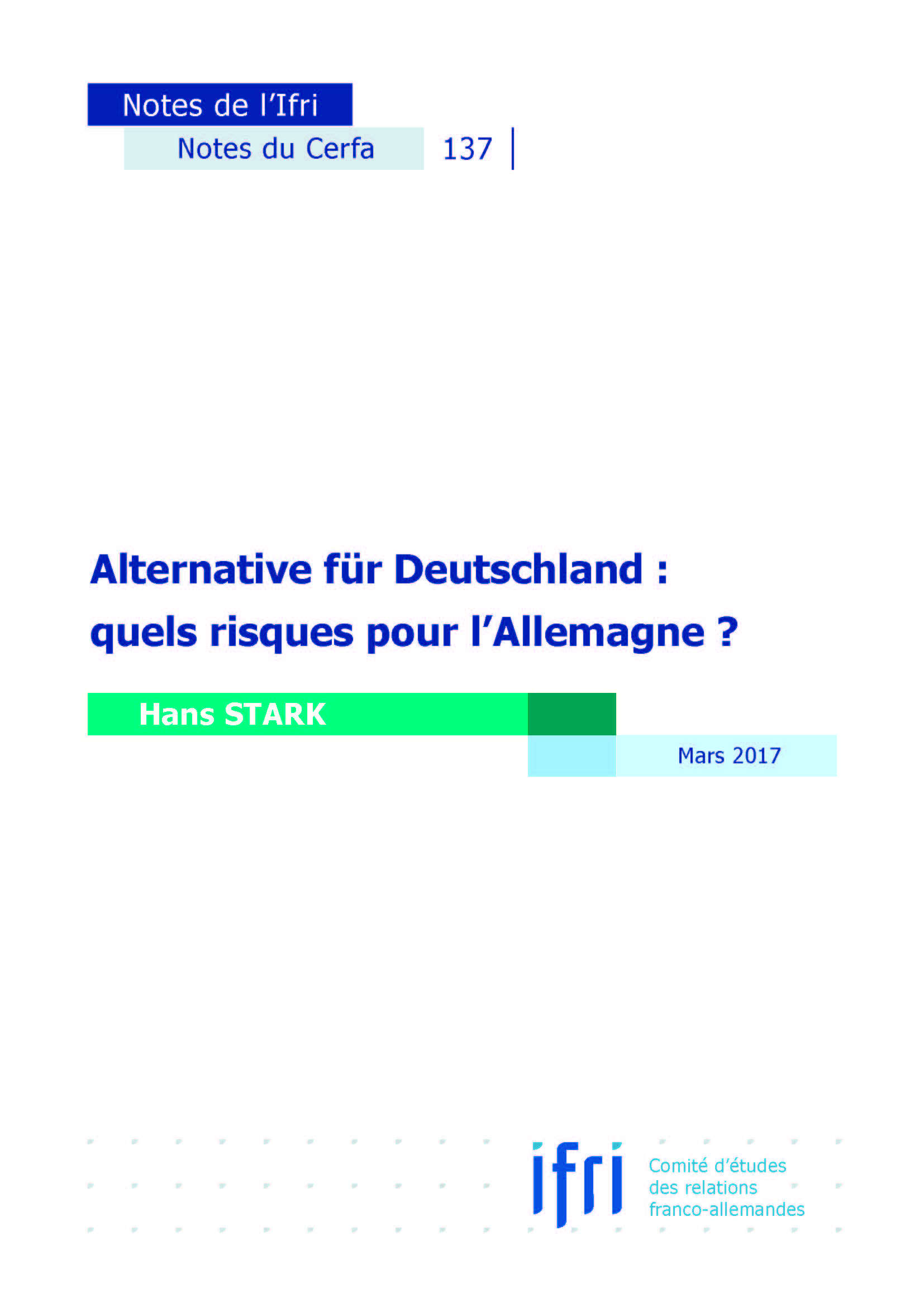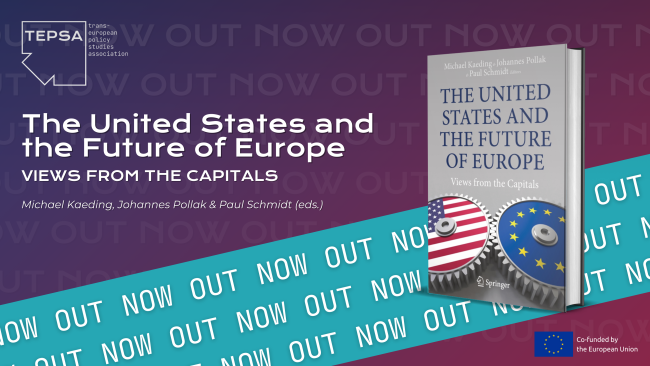Alternative für Deutschland: What risks for Germany?

The AfD - Alternative for Germany – founded in opposition to Angela Merkel’s policy line of supporting southern European countries, has quickly become part of the political family of "right-wing populism" in Europe, with whom it cultivates close ties.
Taking advantage of a sense of frustration towards Europe and globalization as well as a rejection of Germany’s federal authorities and Angela Merkel’s policy of opening the borders in 2015/2016 in certain parts of German society, the AfD has had unexpected success in the 2014 European elections and in German regional elections (between 2014 and 2017). Its entry into the Bundestag and two other regional chambers in 2017 seems highly likely.
At the same time, the AfD has continued to radicalize its political discourse and program. This has allowed it to voice the concerns and serve as parliamentary representative of the Neue Rechte and even the German extreme right. The AfD has no prospect of attaining to power, yet it leaves its mark on the German political debate on controversial issues such as national security, Europe, immigration and the economy. It has thus become part of the German political landscape.
About the author:
Hans Stark graduated from the Institut d’études politiques de Paris (SciencesPo) in 1987, majoring in International Relations and achieving a Diplôme d’études approfondies (DEA) in Soviet and Eastern European Studies in 1990. He holds a PhD in political sciences from the Panthéon-Sorbonne University (2001) that focused on German European politics. In 2011 he obtained his habilitation at the University of Lille 3 in German Studies.
This paper is published in French only: Hans Stark, "Alternative für Deutschland : quels risques pour l'Allemagne ?", Notes du Cerfa, n°137, Ifri, mars 2017.
Related centers and programs
Discover our other research centers and programsFind out more
Discover all our analysesFrance, the U.S. Oldest and Most Complicated Ally: A Stubborn Defender of a Truly European Industrial and Defence Policy
France, the U.S.’ oldest ally, is also the EU country which most stubbornly defends genuinely European industrial and defence policies. It calls for ‘strategic autonomy’ in all political domains, a position increasingly difficult to hold against a hardening international climate.
The Franco-German Brigade and the Revival of European Defense
One thing has been clear since Donald Trump's return to the White House: the very existence of the European unification project is threatened. Unless it develops a sovereign defense policy to counter the war in Ukraine and the weakening of American security guarantees, the European Union will continue to see its internal cohesion and external attractiveness wane.
Friedrich Merz and the Zeitenwende 2.0. A “New Era” for Transatlantic Relations?
On February 23, 2025, almost 60 million voters were called upon to elect a new Bundestag. These elections will also give rise to a new government in Europe's largest economy.
After the Elections: Germany in Search of Shaken Stability?
With a voter turnout of 82.5%, Germany recorded its highest participation since 1987—an increase of 6.1 percentage points compared to 2021. As in the previous election, the high turnout particularly benefited the Alternative for Germany (AfD), which was able to mobilize many former non-voters. Many voters sought to punish the outgoing government with their ballots, as its approval rating had dropped to just 14% before the coalition broke apart in November 2024. Germany is now very likely heading toward a grand coalition between the CDU/CSU and the SPD, with exploratory talks having begun on February 28.











